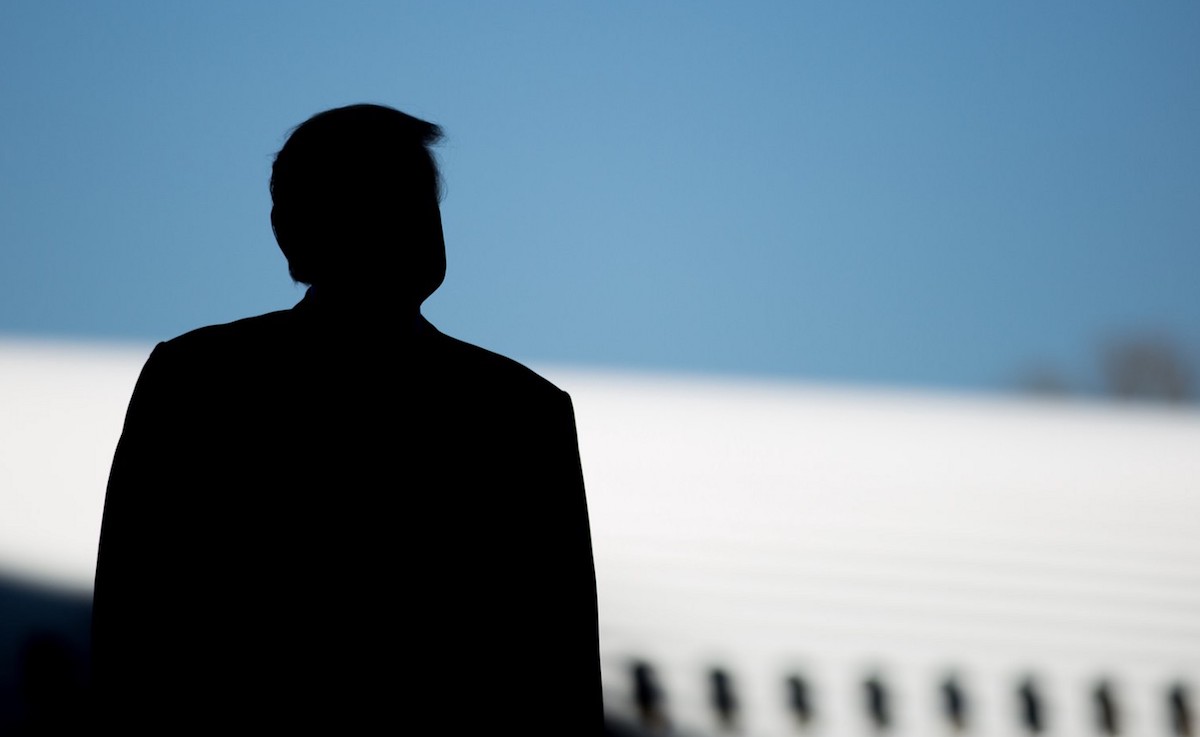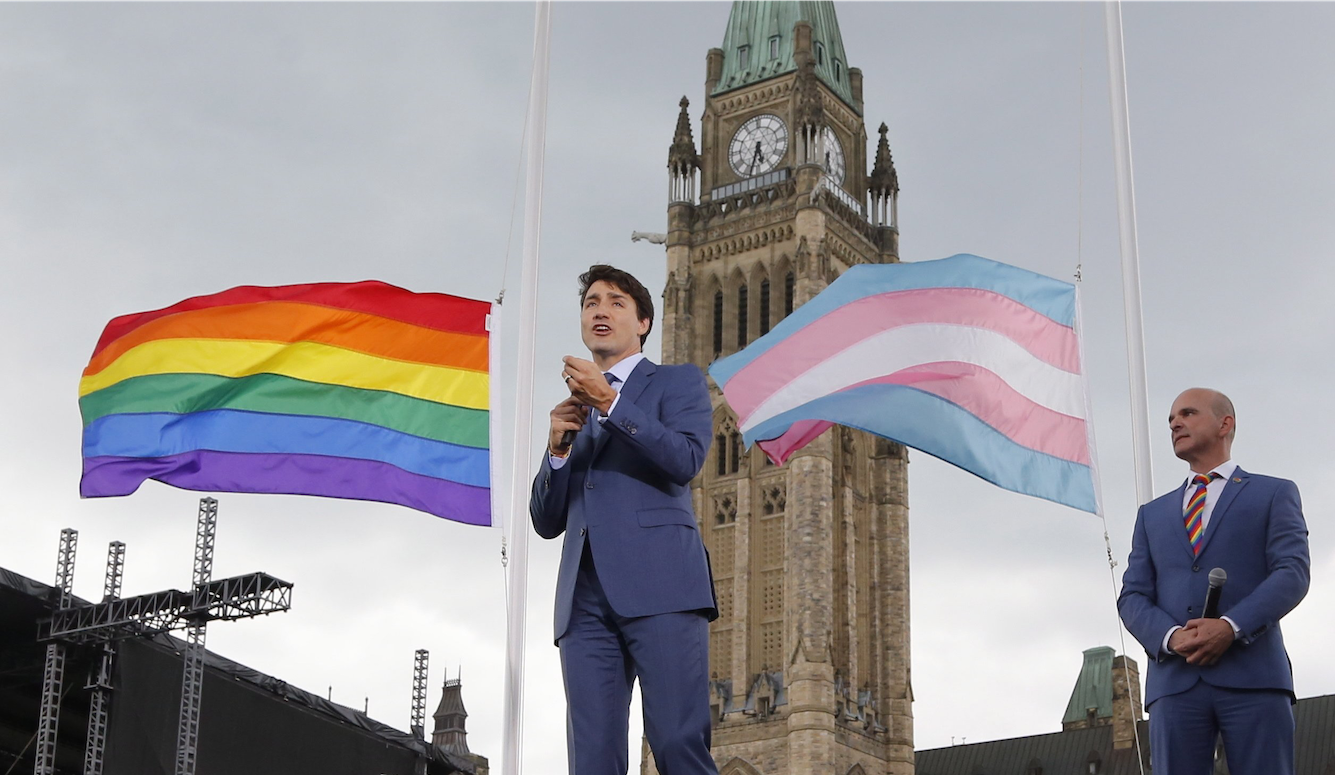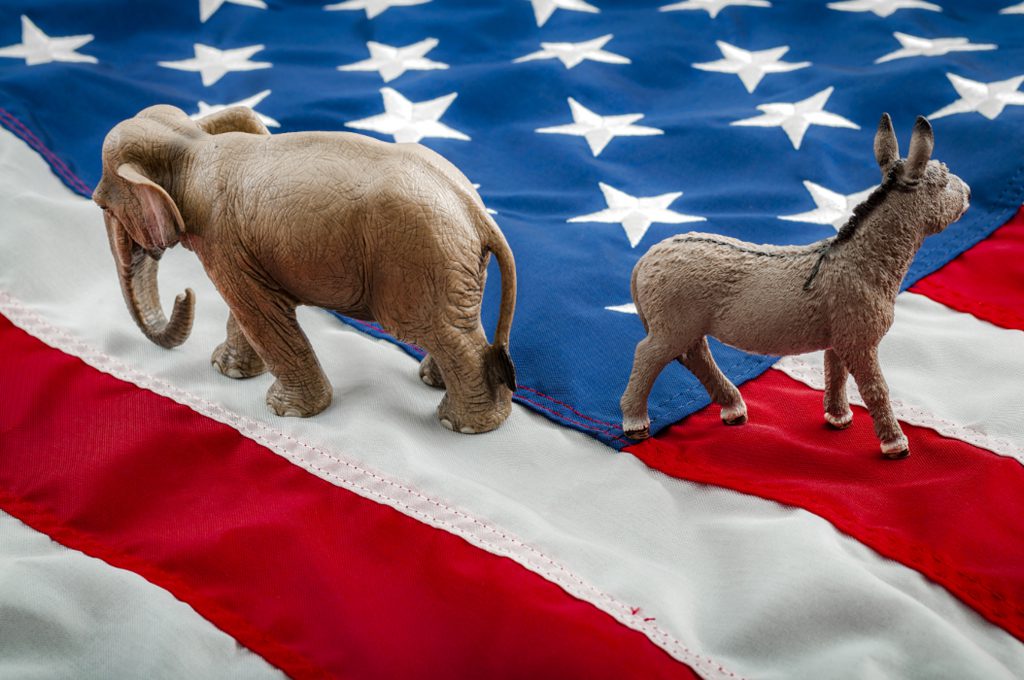US Election
A Government of One
One singular fault line that Trump has truly exposed that could genuinely endanger America’s future.

One year on from the beginning of the Trump presidency and unsurprisingly we’re starting to see plenty of the ‘look in the mirror’ articles and books. There seems to be a great deal of introspection in America right now, which is rather a unique occurrence. For the first time, in my recollection, Americans are genuinely starting to ask themselves how they feel things are going in their country.
In some ways, things are going rather well actually. The stock market is hitting record highs every week and unemployment continues to decline. With a bullish economy, a lot of things are looking up for average Americans and the White House continues to trot out that very line every single day.
Of course, this strong economic environment is being overshadowed by the behavior that we’re regularly seeing from the White House. When the President of the United States isn’t making racially charged statements, he’s taking to Twitter to complain about ‘fake news’ or derailing his own party’s spending plans.
This behavior and the way in which President Trump conducts his newfound role, has led to a great deal of hand-wringing from many commentators. David Frum’s excellent book Trumpocracy is the latest example of a political thinker looking down the road and seeing some very large bumps in America’s future.
Clearly, some economic hurdles lie in the future, despite what the White House might say. Economic bubbles always burst, and people lose their jobs, that’s just the way the world works. However, the Trump presidency has already exposed some true fault lines in the American political system that are much bigger than the economy. Ones that could potentially lead to a very different country than we have come to expect over the last few decades.
There is one particular issue that stands out to me. One singular fault line that Trump has truly exposed that could genuinely endanger America’s future. It’s an issue that seems clear as day to me, and yet barely seems to register in the press.

While we continue talking about the President’s mental state, or the corruption that may, or may not have run throughout his campaign, we still seem to ignore the elephant in the room. Isn’t it a bit terrifying that in a nation founded on justice and freedom for all, one singular human being is so powerful?
It’s an odd question to ask and one that most Americans will scoff at and ignore. The country was, after all, founded on the principle of shaking off the oppressive yoke of a tyrannical king. Almost to a man (or woman), every American will argue that their system was constructed so that no one person could hold power over the masses.
But do the facts back up this rather ideal narrative that everyone learns in school? Unfortunately, while they might have done in the early days of the republic, things have changed a great deal over the last 70 years.
* * *
Like so many issues, it all started with a war. Technically, the United States government has not declared war on another nation since 1941. You see, under the constitution, the nation cannot be led into a war just by one individual. Instead, traditionally, it requires a debate in the halls of Congress and eventually a vote.
However, when Harry Truman bypassed Congress to start the Korean War, he brought about a seismic change the reverberations of which are still being felt today. At the time, Truman believed he was just being ‘expedient’ because he thought Congress would agree with him. But in the long term, he set a dangerous precedent which every President has followed since, knowing that they are no longer accountable to Congress.
This process has been challenged only once, back in 1973 when Congress was so irate about Vietnam that they passed the War Powers Act which demands that a President allow Congress to vote on a war after 90 days. That bill has been a singular failure, never invoked by any President or Congress since. Not once. Since the day Truman decided to ignore Congress and they did nothing, American democracy changed.
Then you have the two-party system. Initially, it was an effective form of government that required bi-partisan legislation to function. In short, both parties had to work together whether they liked it or not. And for a long time, they did seem to like it. Working together to get moderate bills passed was seen as a good thing on Capitol Hill.
That officially began to die in the 1990s when Newt Gingrich faced down then-President Clinton in a dispute over spending plans and shut down the US Government. While he was initially lampooned in the media, Gingrich changed the political landscape in that moment. He became a cult hero to the Republican base and politicians on both sides took note.
They realized that they were more likely to win elections by blaming one another in a country that had become increasingly politically divided. Elected officials who worked across the aisle, found themselves losing primaries to more radical candidates who had no intention of actually doing anything and were instead voted in to obstruct. Indeed, voters have become considerably more interested in an ‘all or nothing’ approach from their politicians. Compromise on anything is not going to win you an election anymore. Just ask Marco Rubio.

And so here we are, 20 years later in a nation that has struggled to pass any real landmark legislation since then. Yes, we had ‘Obamacare’ and the most recent tax bill, but both of these were decades in the making and neither are even semi-decent bills. The issues with both are endless but they essentially sneaked through due to fortuitous timing more than anything else. Both passed during a political ‘perfect storm.’ That is to say, one of those now-few periods where one party controls the House, the Senate, and the White House. The Democrats had taken over Congress in the run up to Obama’s election in 2008 and the Republicans did the same in 2016.
Those periods don’t tend to last very long, unfortunately. When anger is the main motivator for voters, it’s pretty hard to stir it up on your side when you hold all the cards and still aren’t doing very much. Most observers think it would be surprising if the Republicans hold onto the House in 2018 and if they don’t the Democrats will use the same tactics we have seen for the past 20 years – they’ll clog up policymaking for the foreseeable future and we’ll be stuck with at least another 2 years of infighting.
Fortunately for lawmakers, recent Presidents have found a nice little loophole in this system and a way to make sure the policies they really care about can still happen. It’s called the Executive Order and it’s not entirely constitutional. In these orders, the President essentially tells government departments how to use their resources. They aren’t actual legislation – rather a guideline on how to do something, so technically, they are not laws and Congress can’t do anything about them.
Now, they can be written in all sorts of different ways and some are completely pointless (see the abortive attempts to ban Muslims). But if written and used effectively, they can essentially replace policy. For example, Obama’s Gay Rights EO forced government departments to give the LGBT community equal rights. Now Obama never actually passed a law alongside this and Congress never actually voted, but his EO was written and targeted to provide the same effect as a law, without actually being one.
Of course, back when Barack Obama was using EOs left and right to get his policy agenda through because Democrats had lost the House, Republicans were furious. They rightly complained that he was behaving in an unconstitutional manner. Those same Republicans are now suspiciously quiet when the current President does exactly the same thing on policies that they like while Democrats are suddenly up in arms about constitutionality. Funny that.
And so what was once seen as three equal branches of government has now become two bickering yet toothless chambers made up of 535 powerless individuals sitting in Congress. Just down the road, in a much smaller building however, sits just one person, and they seem pretty happy.
As a Commander-in-Chief no longer in need of Congress to direct the nation’s armed forces, the most powerful military in the world answers to one person. As the only person in his party who can actually accomplish political outcomes thanks to a fractured and broken Congress, he is also the only person who can truly make laws.
Therefore, no matter his accomplishments or failures, the President will always be protected by his or her party. The only real way to get anything done in the current legislative quagmire is through Executive Orders. Even Obamacare needed to be propped up with EOs as the years went by, and we will likely see more of the same with the latest Republican Tax bill. Protecting the only person who can issue those orders and deliver on their agenda is now the main function of Republican members of Congress. Removing that same person and getting in ‘their’ guy has become the sole function of the Democrats since 2016.
The alarming degree of power that has been allowed to accumulate within the Oval Office is only now becoming apparent to many because of the man who currently inhabits it. When it was someone who seemed rational and likeable, it was easy for most to overlook the fact that the office itself had already consumed Congress. But while it might have been easy to ignore, that doesn’t change the fact that America is now, more than ever, a government of one.
Fears about what a man like Donald Trump can do with this incredible amount of power now sweep the nation. My belief is that this is not actually the true concern. The man has consistently demonstrated an astounding ability to get in his own way and be his own worst enemy. His ineffectiveness and incompetence seem to know no bounds.
No president in history has inherited a greater golden goose than this one. He has total control in the House and the Senate; the economy is coming right into the peak of its boom years after recovering from the 2008 housing crash; many voters are legitimately hungry for change. Yet, despite these advantages, he has struggled to put forward any kind of agenda and seems to be constantly fighting unnecessary battles. Bar the last-minute tax bill, the sum of his accomplishments in year one is that he didn’t suffer a stroke despite a shockingly bad diet and he signed lots and lots of poorly written, do-nothing EOs.
Trump has exposed how weak American democracy has become over the past few decades. He is a symptom of a system that no longer empowers the many, but instead places truly terrible power in the hands of just one. If that isn’t corrected soon, then eventually, someone who is a lot smarter and a lot worse than Trump will get their hands on that power.
The greatest revelation of the Trump Presidency for me, is that nobody seems to think that there is anything wrong with the office itself. Rather it’s the man temporarily inhabiting it who is the problem. My greatest concern is that if the power that office wields is not reined in and returned to Congress, that eventually Americans will be reminded of what it’s like to live under a capricious monarch. The only difference is that this one will live in the White House and not in Buckingham Palace.
Alistair Penny worked for the Center for Social Justice and the Conservative Party in the UK back when David Cameron was still a thing. He moved to the US for business and stayed for the football. You can follow him on Twitter @alistairpenny
Featured Pic by Ryan Johnson






